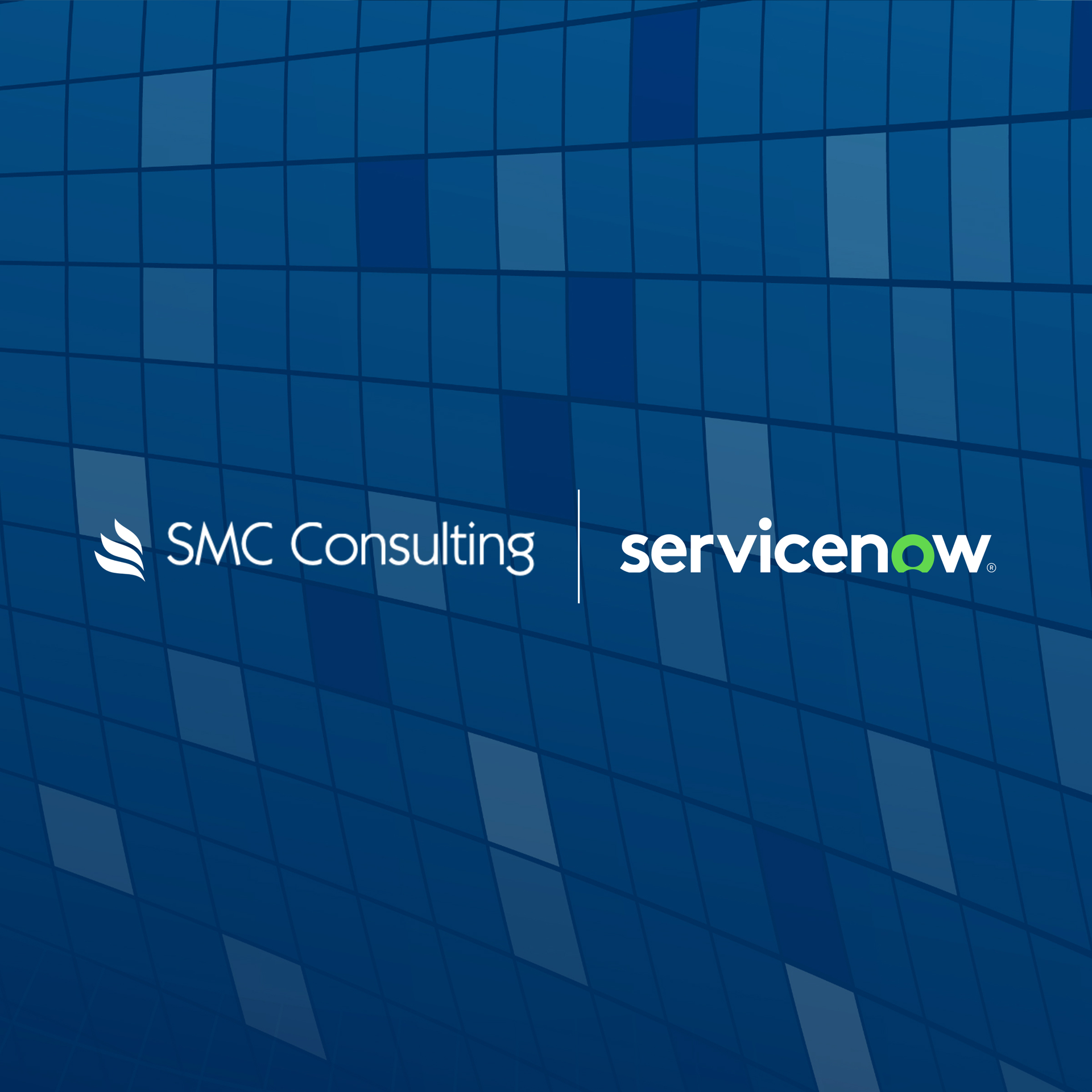Temps de lecture estimé : 10 minutes
Table of Contents
La transformation numérique est au cœur de la révolution actuelle que vivent les entreprises. Chez SMC Consulting, nous sommes fiers d’être à l’avant-garde de ce mouvement. En tant que cabinet de conseil spécialisé dans l’optimisation du flux de travail, les automatisations, l’engagement client et la réussite client, nous aidons les entreprises à naviguer et à prospérer dans cette ère numérique. Partenaire certifié de leaders technologiques tels que monday.com, Freshworks, Ringover et Make, SMC Consulting possède l’expertise et les outils nécessaires pour accompagner les entreprises dans leur transformation numérique.
Digital transformation involves integrating digital technologies into all aspects of a business, fundamentally changing how businesses operate and deliver value to their customers. In a world where consumer expectations are rapidly evolving and competition is fierce, digital transformation is essential to remain competitive, improve operational efficiency, and deliver an exceptional customer experience.
What is Digital Transformation?
Definition of Digital Transformation
Digital transformation is the process by which businesses adopt digital technologies to modify their working methods, optimize their processes, and improve customer interaction. It’s not just about tools and technologies, but also about redefining corporate culture and management models to meet current market needs.
Key Elements of Digital Transformation
- Technology: Technology is the main driver of digital transformation. It includes the adoption of cloud solutions, the use of artificial intelligence, process automation, and information system integration. These technologies enable businesses to optimize their operations, analyze data in real-time, and make informed decisions.
- Corporate Culture: Successful digital transformation requires a cultural change within the organization. This involves promoting an innovation mindset, encouraging risk-taking, and supporting continuous employee training. An adaptable and digitally-oriented corporate culture is crucial to leveraging new technologies.
- Processes: Business processes must be reviewed and optimized to fully leverage digital technologies. This includes automating repetitive tasks, simplifying workflows, and improving cross-functional collaboration. The goal is to make operations more efficient and reduce costs.
Importance and Global Impact on Businesses
Digital transformation is no longer an option but a necessity for businesses that want to remain relevant and competitive. Here are some of the most significant global impacts:
- Improved Customer Experience: Digital technologies enable increased personalization and real-time interaction with customers. Businesses can thus offer more engaging and satisfying experiences, thereby increasing customer loyalty.
- Operational Efficiency: By automating processes and using advanced workflow management tools, businesses can reduce errors, speed up operations, and decrease costs. This leads to significant productivity improvements.
- Innovation and Adaptability: Digital transformation paves the way for continuous innovation. Businesses can quickly test and implement new ideas, products, and services, allowing them to adapt rapidly to market changes.
- Access to New Market Opportunities: Digitally transformed businesses can exploit new markets and distribution channels. They can reach a broader and more diverse audience through digital platforms and advanced marketing technologies.
At SMC Consulting, we are dedicated to supporting our clients throughout this journey, providing them with the tools, strategies, and support needed to succeed in this new digital era.
Digital Transformation Challenges for Businesses
Digital transformation presents major challenges for businesses, influencing their competitiveness, operational efficiency, ability to innovate, and the quality of customer experience they can offer. Here’s an overview of the main challenges:
Market Competitiveness
In an increasingly competitive environment, businesses must adopt digital technologies to remain relevant. Digital transformation allows businesses to stand out by offering innovative products and services, optimizing their internal processes, and improving their responsiveness to market changes. Those who don’t adopt these changes risk losing their competitive advantage and being outpaced by more agile and technologically advanced competitors.
Enhanced Customer Experience
One of the main objectives of digital transformation is to improve customer experience. Digital tools enable smoother and more personalized interaction with customers, whether through chatbots, instant messaging platforms, or advanced CRM systems. By better understanding customer needs and behaviors through collected data, businesses can offer more targeted and satisfying experiences, thus increasing customer loyalty and satisfaction.
Operational Efficiency
The integration of digital technologies allows for the automation of many repetitive tasks, streamlining processes, and reducing human errors. This leads to significant improvement in operational efficiency. Businesses can thus reduce their operational costs, accelerate their production and delivery times, and improve the quality of their products and services. Tools like those provided by monday.com and Make are essential for optimizing workflows and maximizing productivity.
Innovation and Rapid Adaptation
La transformation numérique favorise une culture de l’innovation en permettant aux entreprises de tester rapidement de nouvelles idées et d’adopter des technologies émergentes. Les entreprises peuvent ainsi répondre plus rapidement aux changements du marché et aux attentes des clients. Cette capacité d’adaptation rapide est cruciale dans un monde en constante évolution. Les solutions de Freshworks et Ringover, par exemple, permettent une communication et une collaboration fluides, essentielles pour encourager l’innovation continue.
Digital Transformation Strategies
To succeed in digital transformation, businesses must adopt a structured and strategic approach. Here are the key steps to develop an effective digital transformation strategy:
Current State Assessment and Goal Setting
The first step is to assess the current state of the business in terms of digital maturity. This includes analyzing existing processes, technologies in place, and corporate culture. Once this assessment is completed, it is crucial to define clear and measurable objectives for digital transformation. These objectives must be aligned with the company’s strategic vision and address the needs identified during the initial assessment.
Developing a Digital Roadmap
A detailed digital roadmap must be developed to guide the transformation process. This roadmap should include key steps, necessary resources, timelines, and performance indicators. It should also identify priority initiatives and define the responsibilities of each team involved. The roadmap serves as a blueprint to ensure consistent and structured implementation of digital transformation.
Choosing Appropriate Technologies
Choosing appropriate technologies is crucial for the success of digital transformation. Businesses must select tools and solutions that meet their specific needs and integrate easily with their existing systems. For example,
Change Management and Employee Training
Digital transformation is not just about technology; it also involves significant change in company culture and practices. It is essential to effectively manage this change to minimize resistance and maximize employee buy-in. This involves transparent communication, adequate training, and continuous support. Employees must be trained in new technologies and processes so they can use them effectively. Additionally, it is important to create a work environment that encourages innovation and adaptability.
By adopting these strategies, businesses can successfully navigate their digital transformation, maximizing benefits while minimizing risks and challenges. At SMC Consulting, we are dedicated to supporting our clients through each step of this process, providing the guidance, tools, and support necessary to succeed in the digital age.
Key Technologies in Digital Transformation
Digital transformation relies on the adoption and integration of advanced technologies that enable optimization of operations, improvement of customer experience, and stimulation of innovation. Here are the key technologies that play a crucial role in this process:
Process Automation
Process automation is an essential component of digital transformation. It allows for the reduction of repetitive manual tasks, increases efficiency, and minimizes human errors.
Examples and Benefits:
- Make (formerly Integromat): Make is an automation platform that allows connecting different applications and automating complex workflows. For example, a business can use Make to automate data transfer between its CRM and order management system, thus reducing the need for manual entry and accelerating operational processes.
- Benefits: Process automation saves time, reduces operational costs, and improves data accuracy. It also frees employees from repetitive tasks, allowing them to focus on higher-value activities.
Workflow Management
Effective workflow management is crucial for optimizing internal processes and improving collaboration between teams.
Importance of Effective Management:
- Monday.com: monday.com is a project and workflow management platform that allows teams to plan, track, and manage their projects collaboratively. It provides an overview of tasks, deadlines, and responsibilities, which facilitates coordination and communication between team members.
- Benefits: Effective workflow management improves transparency, increases productivity, and ensures projects are delivered on time. It also helps identify bottlenecks and optimize resource allocation.
Customer Engagement and Success
Customer engagement and success are pillars of customer growth and loyalty. Digital technologies enable significant improvement in these aspects.
Strategies and Tools:
- Freshworks: Freshworks offers a suite of tools to improve customer engagement, including Freshdesk for customer support, Freshchat for live messaging, and Freshsales for sales management. These tools enable providing responsive support, personalizing interactions, and tracking the customer journey in an integrated way.
- Benefits: Using customer engagement tools enables providing high-quality service, quickly responding to customer needs, and increasing their satisfaction and loyalty.
Communication and collaboration
Effective communication and collaboration are essential for the success of any organization, particularly in a digitalized work environment.
Role of Communication Solutions:
- Ringover : Ringover est une solution de téléphonie cloud qui facilite la communication interne et externe. Elle offre des fonctionnalités telles que les appels illimités, les conférences téléphoniques et l’intégration avec d’autres outils de communication et de gestion.
- Benefits: Communication solutions like Ringover improve team collaboration, enable smooth communication with customers and partners, and increase employee flexibility and mobility.
To conclude, digital transformation is a powerful lever for revolutionizing modern businesses. By integrating advanced technologies and adopting a strategic approach, businesses can not only improve their competitiveness but also optimize their operations, enrich customer experience, and stimulate innovation.
At SMC Consulting, we are committed to guiding our clients through each step of their digital transformation. Our expertise in workflow optimization, automation, customer engagement, and customer success, combined with our partnerships with technology leaders like monday.com, Freshworks, Ringover, and Make, allows us to provide tailored and effective solutions.
- What is workflow management?
- Customer Service Automation
- How to boost your project management?
- Qu’est-ce que le logiciel monday ?
- Créer une customer journey map efficace




